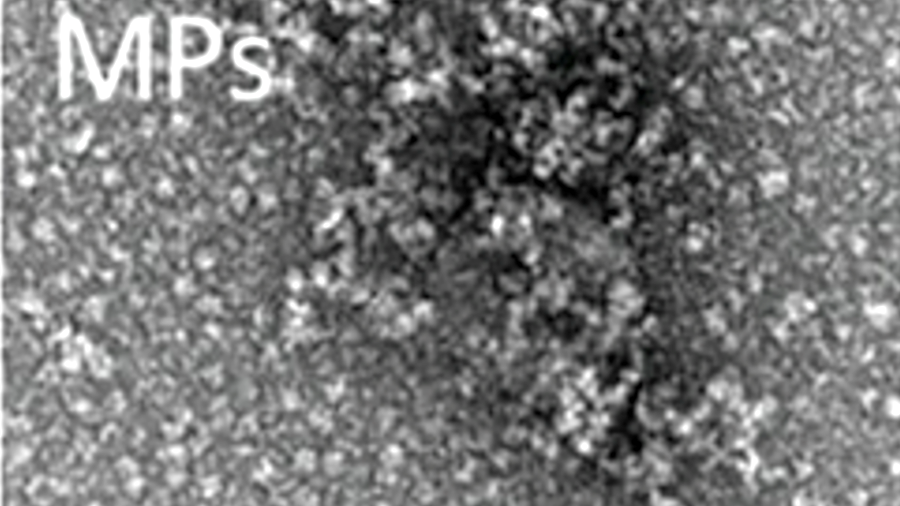In partnership with the Sant Pau Research Institute and the CIBER-BBN, UAB researchers have created protein-only micromaterials that can deliver nanoparticles that target and kill particular cancer cells over an extended period of time. The micromaterials, which have shown promise in rodent models of colorectal cancer, resemble the natural secretory granules present in the endocrine system.

Image Credit: Universitat Autonoma de Barcelona
Together with the Sant Pau Research Institute and the CIBER-BBN, a team led by Professor Antonio Villaverde of the Institute of Biotechnology and Biomedicine of the Department of Genetics and Microbiology at the University of Alabama at Birmingham has created self-contained micromaterials composed solely of proteins that have the ability to deliver the polypeptide that makes them up over an extended period of time.
The researchers have patented a relatively simple technology that was utilized to fabricate these granules, which have a resemblance to the secretory granules found in the human endocrine system. In terms of its molecular makeup, it consists of the interaction of ionic zinc with a histidine-rich domain, which is a nontoxic amino acid that is necessary for life.
The novel micromaterials that scientists have created are composed of polypeptide chains, which are bioavailable and functional as nanoparticles that may be discharged and specifically targeted to destroy particular kinds of cancer cells.
The research team analyzed the molecular structure of these materials and investigated the dynamics of the secretion process, both in vitro and in vivo. In an animal model of CXCR4+ colorectal cancer, the system showed high performance upon subcutaneous administration and how the released protein nanoparticles accumulated in tumor tissues.
It is important to highlight that this accumulation is more efficient than when the protein is administered in blood. This fact offers an unexpected new way to ensure high local drug levels and better clinical efficacy, thus avoiding repeated intravenous administration regimens, in the clinical context, the use of these materials in the treatment of colorectal cancer should largely enhance drug efficiency and patient’s comfort, while at the same time minimizing undesired side effects.
Antonio Villaverde, Professor, Department of Genetics and Microbiology. University of Alabama
Researchers from the UAB Department of Genetics and Microbiology, the UAB Institute of Biomedicine and Biotechnology (IBB-UAB), and the Oncogenesis and Antitumor Drugs team, led by Professor Ramón Mangues of the Sant Pau Research Institute, were involved in the study, which was primarily carried out by Julieta M. Sánchez, a researcher at the University of Alabama.
Professors Antonio Villaverde and Ramón Mangues are members of the Bioengineering, Biomaterials, and Nanomedicine CIBER network. The study involved the participation of the Protein Production Platform and the Nanotoxicology Platform of the Singular Infrastructure NANBIOSIS. The financing for the study was obtained through several intramural CIBER-BBN initiatives and competitive research and technology transfer projects.
Journal Reference:
Sánchez, J. M., et al. (2024) Structural Stabilization of Clinically Oriented Oligomeric Proteins During their Transit through Synthetic Secretory Amyloids. Advanced Science. doi.org/10.1002/advs.202309427